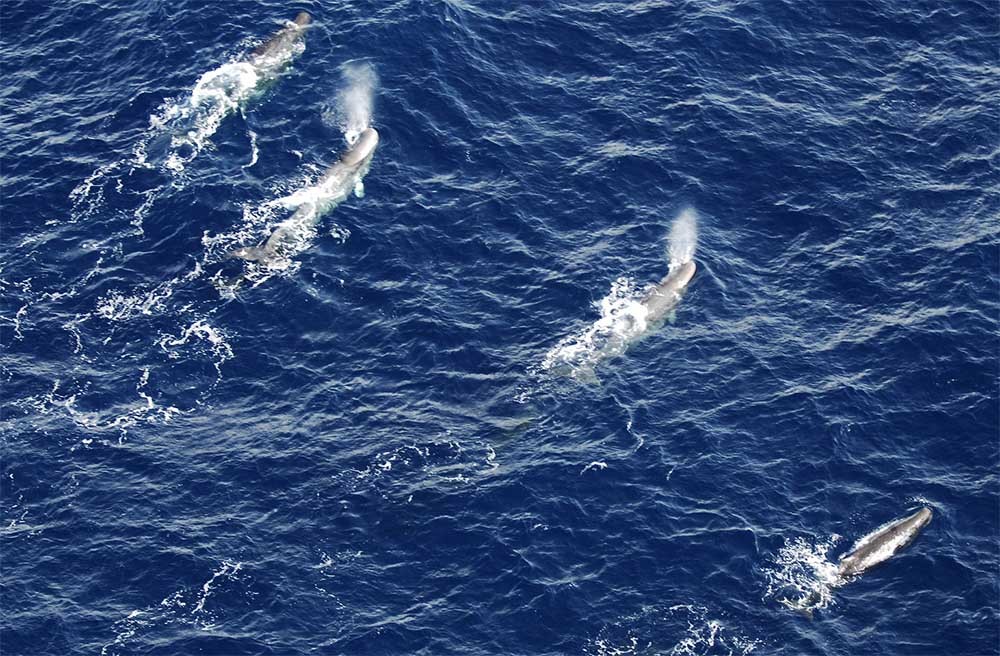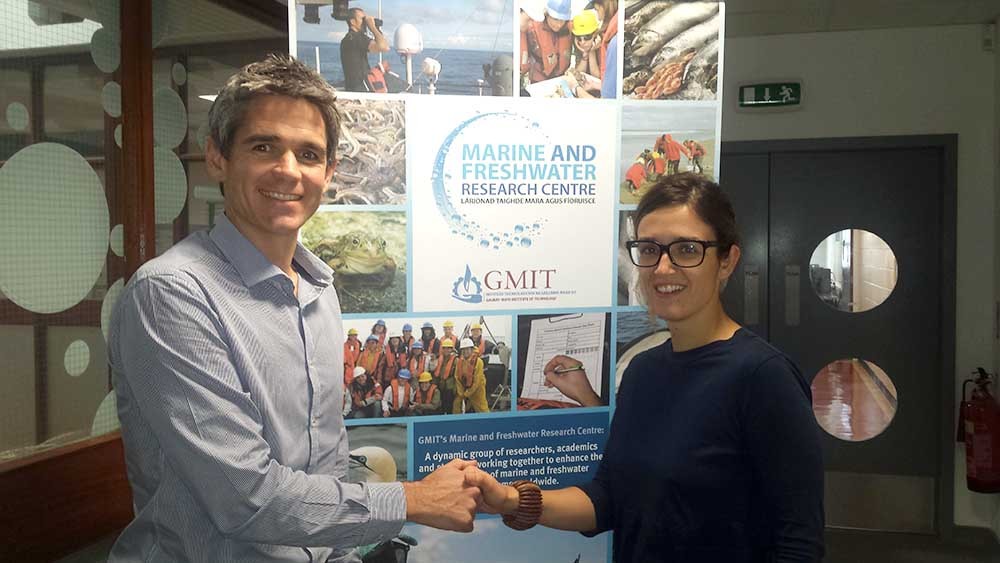
Woodside Energy Ireland, a subsidiary of Australia’s largest oil and gas company, and Galway-Mayo Institute of Technology (GMIT) have confirmed the awarding of a new scholarship.
The Woodside Irish Cetacean PhD Scholarship has been awarded to Myrto Tourgeli, a PhD student at GMIT’s Marine and Freshwater Research Centre.
The scholarship will support Myrto’s PhD for her work on assessing habitat preferences for sperm whales and long-finned pilot whales in Irish offshore marine waters and better understanding their main anthropogenic threats.
The collaboration with Woodside builds on the knowledge and experience GMIT’s Marine & Freshwater Research Centre has built up in recent years in the field of remote acoustic monitoring of cetaceans (whales, dolphins and porpoise).
In 2016 Woodside deployed two additional underwater acoustic recorders in the Porcupine Seabight. Data from these recorders will be made available to GMIT’s scholarship recipient Myrto to provide a better understanding of the distribution and ecology of two of the most abundant and ecologically important species in offshore Ireland; long-finned pilot whales and sperm whales.
GMIT are also currently delivering a €1 million offshore acoustic monitoring project funded by the Petroleum Affairs Division of the Department of Communications, Climate Action and the Environment called ObSERVE, which will provide similar acoustic data from eight additional sites along the edge of the continental shelf.
Dr Simon Berrow, lecturer in the GMIT Dept of Natural Science, and a Principal Investigator on both these projects, said: “The acoustic dataset currently being collected in Ireland’s offshore environment on whales and dolphins is unprecedented in Europe and will provide a unique opportunity to increase significantly our understanding of the species present and their ecology. We welcome the opportunity to work with Woodside to pursue both our common interests to ensure the sustainable management of Ireland’s offshore resources”.
Fellow lecturer in the Dept of Natural Science at GMIT and an expert in marine mammal acoustics, Dr Joanne O’Brien, congratulated Woodside’s responsible approach to assessing the effects of anthropogenic noise on offshore populations of whales and dolphins adding “it will allow us to derive appropriate mitigation in order to ensure the protection of offshore cetaceans and habitats”.

Woodside Country Manager, Ireland, Gareth Parry, said “We are delighted to continue our relationship with GMIT with the Woodside Irish Cetacean PhD Scholarship. The scholarship will build on our collaboration with GMIT in 2014, where we successfully completed one of the first static acoustic monitoring studies of whales and dolphins in Ireland’s offshore waters.”
“We recognise the value of collaborating with local experts to improve our understanding of the marine environment and our potential impacts. In turn, we can openly share the knowledge and insights from these studies to contribute to the wider understanding of marine ecosystems,” adds Mr Parry.
Woodside, working together with Curtin University’s Centre for Marine Science and Technology and consultancy company RPS in Western Australia, GMIT and the Marine Institute in Ireland, deployed underwater acoustic recorders for six months of 2014 at three sites, two in the Porcupine Seabight and one to the south-west.
The recorders are capable of detecting a broad range of sounds that whales and dolphins make during communication and feeding. The recording can be analysed to determine the presence of individual species in an area. The data collected provided for the first time, detailed information on the occurrence of fin and blue whales, long-finned pilot and sperm whales and a group of whales called beaked whales in the areas in which they were deployed.